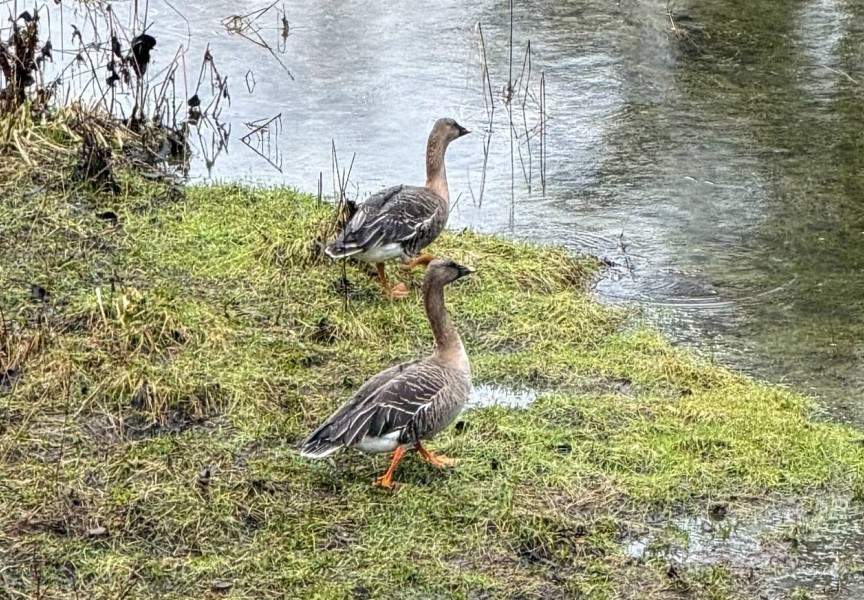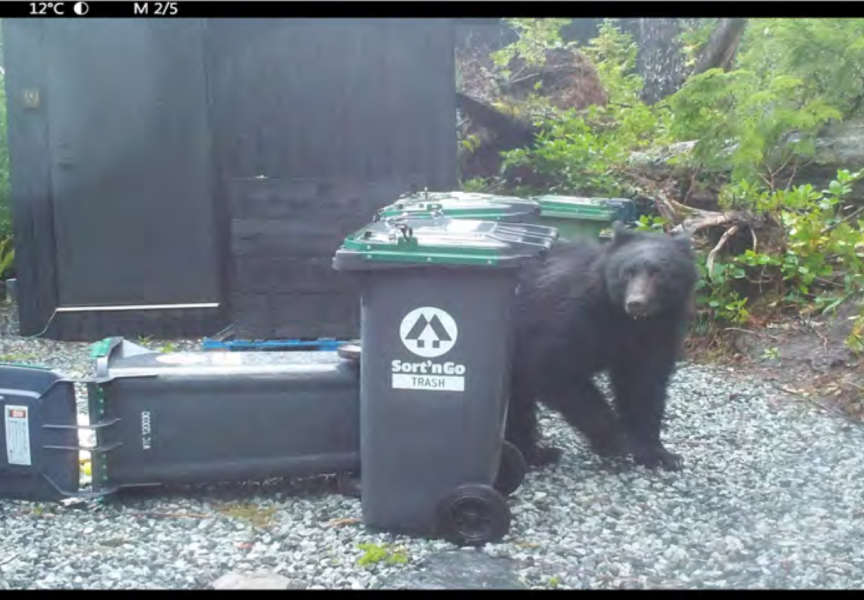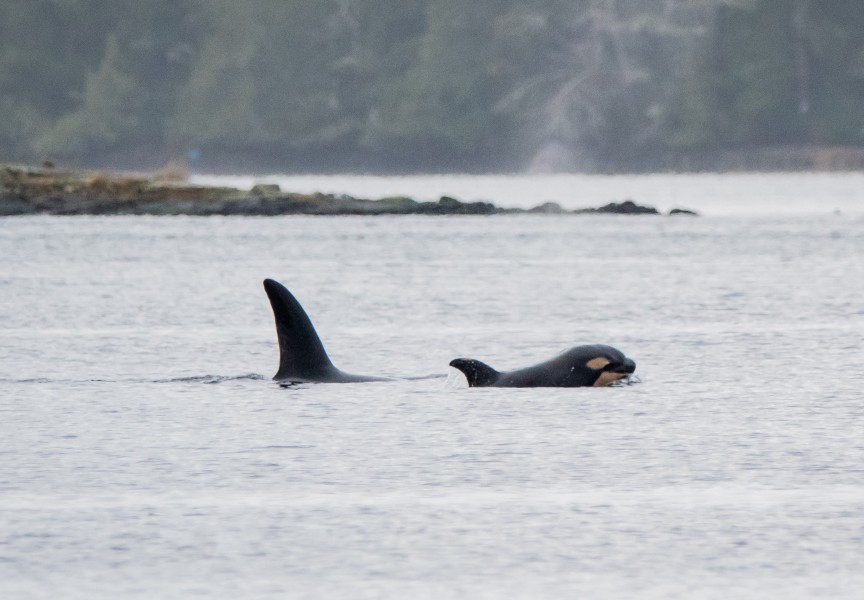According to the World Meteorological Organization’s (WMO) Provisional State of Global Climate, 2023 is reported to be the warmest in the 174-year observational record, surpassing 2016 and 2020 records for warm temperatures.
For Ka:’yu:’k’t’h’/Che:k’tles7et’h’ First Nations (KCFN), the biggest impact from climate change is on their cultural ways of life through traditional food systems, said Katarina Duke, KCFN’s manager of Marine Conservation and Fisheries.
“Because of all the changes that are happening, especially in the oceans, with ocean acidification, for example, it's really impacting what species are available for social and ceremonial purposes,” said Duke.
“Almost all the salmon stock in KCFN territory have declined,” she shared. “They’re dwindling and they’re definitely needing some extra help.”
“Climate change is not going anywhere,” added Duke. “But we need to figure out how can we help other species live, adapt, and mitigate these impacts on them for basically the benefit of everyone, everything; all living beings.”
Since Duke has been at KCFN she's noticed unpredictable weather, making it difficult to use traditional knowledge mechanisms to predict precipitation levels, temperatures, and weather, among others.
“Historical data begins to no longer serve as a baseline,” said Duke. “Indigenous knowledge is having to adapt by continually observing patterns in nature.”
“Because those are being disrupted, knowing when a species is going to be at a set location, and when it’s not, it’s causing to be a problem for when it’s time to harvest,” continued Duke, adding that not only salmon but medicinal plants are impacted. “Traditional harvesting areas may be relocating to other areas or may be dwindling entirely.”
Foundational to traditional food systems is biodiversity, she shared.
“When we protect traditional food systems from climate change we can also protect biodiversity and the health of the ecosystems our ways of being depend on,” said Duke. “Protecting traditional food systems, protects culture and ways of being, it protects the health of the community (across [spiritual, physical, and mental] dimensions) and the health of the natural world.”
It was in 2022, the most recent full-year of recorded data, that the measurement of heat absorbed and stored in the ocean reached its peak in the 65-year observational record, according to the WMO’s Provisional State of Global Climate.
“The ocean absorbs around one quarter of the annual emissions of anthropogenic [carbon dioxide],” reads the WMO report. “Carbon dioxide reacts with seawater and alters the carbonate chemistry, resulting in a decrease in pH referred to as ‘ocean acidification’.”
“Ocean acidification affects organisms and ecosystem services, including food security, by reducing biodiversity, degrading habitats, and endangering fisheries and aquaculture,” the report continued.
Despite the WMO’s report, British Columbia’s climate change accountability report outlined that the province’s net Greenhouse Gas Emissions have decreased by five per cent since 2018, and four per cent since 2007, reads a press release from the Ministry of Environment and Climate Change.
Methane emissions were reduced from the oil and gas sector by 50 per cent, the report continued, outdoing their 2025 target to reduce methane emission by 45 per cent.
“We continue to be on the right path to meet our ambitious emissions-reductions targets, even as our population and our economy have both grown significantly over the past few years,” said George Heyman, B.C.’s minister of Environment and Climate Change Strategy, in a recent press release. “By continuing to accelerate thoughtful, effective CleanBC policies and by making more investments in clean economic growth, we are confident that we can meet our climate targets and contribute to a secure and more affordable future for British Columbians.”
For Duke, solutions to protect traditional food systems consist of looking beyond the conventional management strategies, and instead “weave multiple ways of knowing” which include both “new and old options”.
“For KCFN this isn't just about protecting the foods currently in the KCFN diet but to reclaim those foods that are absent or limited from the diets,” said Duke. “Finding ways in which northern abalone can become a part of the traditional food systems again as it was pre-contact and before over-exploitation.”
“Northern abalone, however, are protected under Species at Risk Act (SARA) but perhaps we need to explore how we can bring abalone back without further compromising the wild population, perhaps even supporting its recovery,” she added.
Duke also noted solutions such as the use of clam gardens, which are “aquaculture founded on Indigenous knowledge capable of cultivating biodiversity for rich food systems.”
“Food is just so important,” said Duke. “Realizing that connection between climate change and food is really, I think, really critical.”








